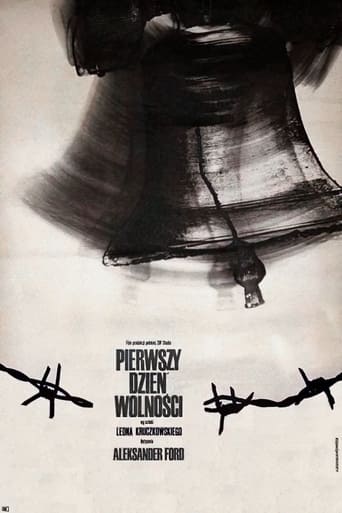"Pierwszy dzień wolności" (1964), a poignant Polish film produced by Zespół Filmowy "Studio," masterfully captures the complexities of post-war life through the lens of a small village. Directed by Aleksander Ford, the film delves into the immediate aftermath of World War II, focusing on the interactions between Polish villagers and a group of Soviet soldiers who arrive to liberate them. The narrative unfolds over a single day, yet it encapsulates the broader themes of freedom, suspicion, and the lingering effects of war on human relationships. The film's strength lies in its nuanced portrayal of characters, each grappling with their own hopes and fears in the face of newfound freedom. The villagers, initially overjoyed at the prospect of liberation, soon find themselves questioning the intentions of their Soviet liberators. This tension is palpable throughout the film, as Ford skillfully navigates the delicate balance between gratitude and suspicion. The performances are raw and authentic, contributing to the film's emotional resonance and its ability to engage viewers on a deeply human level. Cinematographically, "Pierwszy dzień wolności" is a testament to the power of black-and-white filmmaking. The stark contrasts and shadows not only reflect the uncertainty and moral ambiguity of the time but also enhance the film's dramatic intensity. The rural setting, with its rustic charm and inherent isolation, serves as a fitting backdrop for the unfolding drama, emphasizing the villagers' vulnerability and the soldiers' imposing presence. Ultimately, "Pierwszy dzień wolności" stands as a significant work in Polish cinema, offering a thought-provoking exploration of the complexities of liberation. It challenges the audience to consider the true meaning of freedom and the often-unseen struggles that accompany it. Through its compelling storytelling and evocative visuals, the film remains a powerful reminder of the enduring impact of war on individuals and communities alike.
Year1964
Runtime89 min
GenresDramaWar
Production countriesPoland
